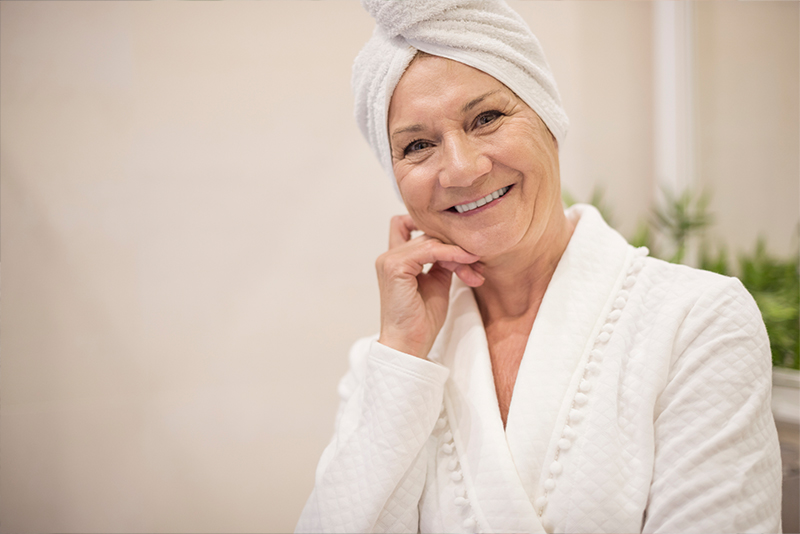Sinking into a soothing, warm, bubble bath at the end of a stressful day and stepping into a hot, invigorating shower first thing in the morning are daily pleasures for a great many of us. But it really is possible to have too much of a good thing with regards to senior hygiene and bathing habits. You might want to rethink that daily bath or shower for seniors for several reasons:
- Thinner skin which could lead to easier bruising and other injuries
- A greater chance of falls on slippery floors
- Mobility issues
- The risk of skin infections from cracked, dry skin
- Fatigue
- And more
How Frequently Should an Older Adult Bathe?
A couple of times weekly is adequate to keep up personal hygiene for older adults. In between, a warm washcloth can be used to clean areas that require additional attention. This is particularly important for seniors who wear products to manage incontinence.
Special Considerations for Dementia
One exception to think about is a senior with dementia. Because routine is so important when cognitive issues are a factor, a daily shower or bath could be a source of comfort. If a person with dementia is fearful or otherwise resists personal hygiene, however, try the following recommendations:
- Focus on comfort. Keep the bathroom warm. Turn on music they enjoy. Have plenty of big, soft towels on hand. Use shampoo and soap or body wash in a relaxing, pleasant scent.
- Encourage independence. Empower the person to remain in control of the bathing process whenever you can. Encourage them to participate based on their ability level, regardless of whether that means just holding onto the washcloth or shampoo bottle.
- Ease fears. The loud, pounding sound of a shower or bathwater running is frightening for many older adults with dementia. A handheld shower set at a minimal level is quieter and enables the individual to see where the water is originating from.
- Talk through each step of the process. Explain what is going to happen in simple terms and in a soothing tone of voice before each part of the bathing process.
- Establish a positive association. Incorporate a particularly enjoyable activity at the conclusion of the bath-time routine. For instance, provide a favorite snack that is only served after bathing so it creates a positive connection.
Frequently, seniors feel most comfortable having assistance with personal hygiene needs from a professional caregiver. Radiant Health Services’ care team is fully trained and experienced in providing support for safe, comfortable showers or baths. Our focus is always on ensuring respect and dignity and addressing any specific fears or concerns with skill and empathy. Contact us online, or give us a call at (240) 673-6377 to find out more about our top-rated in-home care services.
